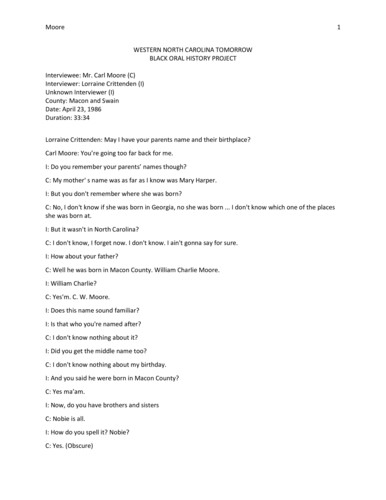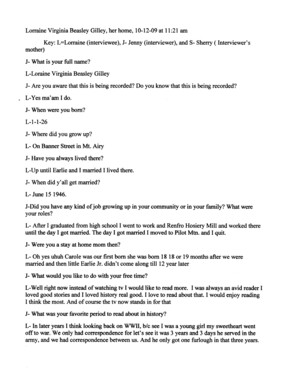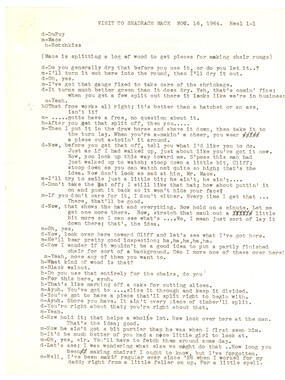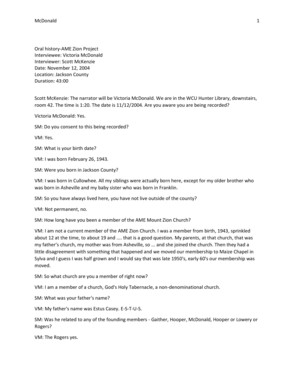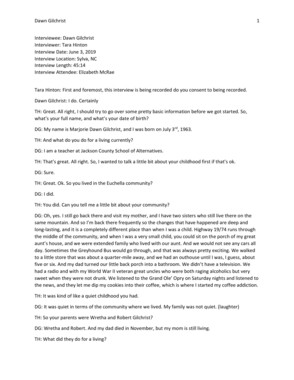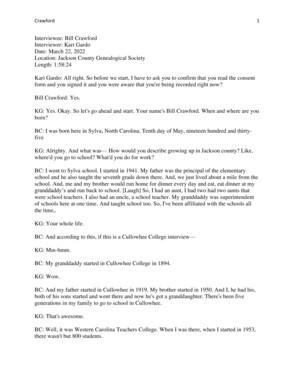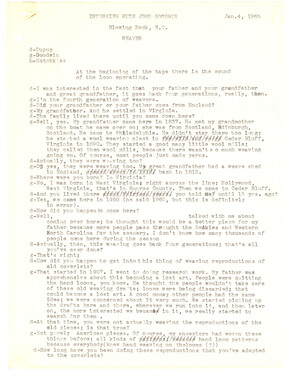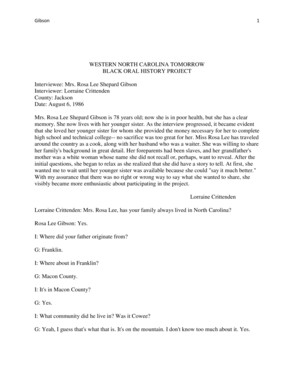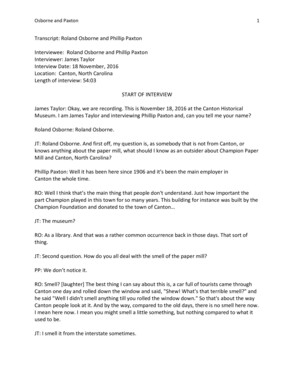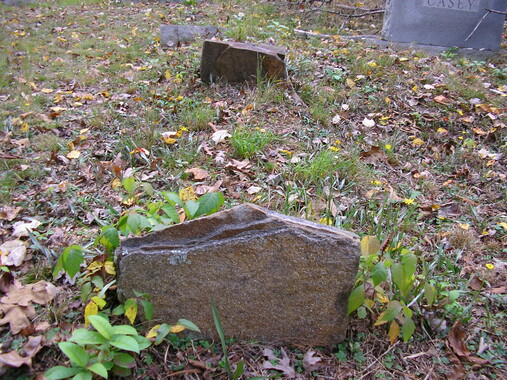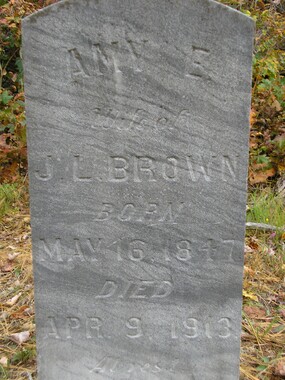Western Carolina University (20)
View all
- Canton Champion Fibre Company (2308)
- Cherokee Traditions (293)
- Civil War in Southern Appalachia (165)
- Craft Revival (1942)
- Great Smoky Mountains - A Park for America (2683)
- Highlights from Western Carolina University (430)
- Horace Kephart (941)
- Journeys Through Jackson (154)
- LGBTQIA+ Archive of Jackson County (15)
- Oral Histories of Western North Carolina (314)
- Picturing Appalachia (6679)
- Stories of Mountain Folk (413)
- Travel Western North Carolina (160)
- Western Carolina University Fine Art Museum Vitreograph Collection (129)
- Western Carolina University Herbarium (92)
- Western Carolina University: Making Memories (708)
- Western Carolina University Publications (2283)
- Western Carolina University Restricted Electronic Theses and Dissertations (146)
- Western North Carolina Regional Maps (71)
- World War II in Southern Appalachia (131)
University of North Carolina Asheville (6)
View all
- 1700s (1)
- 1860s (1)
- 1890s (1)
- 1900s (2)
- 1920s (2)
- 1930s (5)
- 1940s (12)
- 1950s (19)
- 1960s (35)
- 1970s (31)
- 1980s (16)
- 1990s (10)
- 2000s (20)
- 2010s (24)
- 2020s (4)
- 1600s (0)
- 1800s (0)
- 1810s (0)
- 1820s (0)
- 1830s (0)
- 1840s (0)
- 1850s (0)
- 1870s (0)
- 1880s (0)
- 1910s (0)
- Appalachian Region, Southern (15)
- Asheville (N.C.) (11)
- Avery County (N.C.) (1)
- Buncombe County (N.C.) (55)
- Cherokee County (N.C.) (17)
- Clay County (N.C.) (2)
- Graham County (N.C.) (15)
- Great Smoky Mountains National Park (N.C. and Tenn.) (1)
- Haywood County (N.C.) (40)
- Henderson County (N.C.) (5)
- Jackson County (N.C.) (131)
- Knox County (Tenn.) (1)
- Macon County (N.C.) (17)
- Madison County (N.C.) (4)
- McDowell County (N.C.) (1)
- Mitchell County (N.C.) (5)
- Polk County (N.C.) (3)
- Qualla Boundary (6)
- Rutherford County (N.C.) (1)
- Swain County (N.C.) (30)
- Watauga County (N.C.) (2)
- Waynesville (N.C.) (1)
- Yancey County (N.C.) (3)
- Blount County (Tenn.) (0)
- Knoxville (Tenn.) (0)
- Lake Santeetlah (N.C.) (0)
- Transylvania County (N.C.) (0)
- Interviews (314)
- Manuscripts (documents) (3)
- Personal Narratives (7)
- Photographs (4)
- Sound Recordings (308)
- Transcripts (216)
- Aerial Photographs (0)
- Aerial Views (0)
- Albums (books) (0)
- Articles (0)
- Artifacts (object Genre) (0)
- Biography (general Genre) (0)
- Cards (information Artifacts) (0)
- Clippings (information Artifacts) (0)
- Crafts (art Genres) (0)
- Depictions (visual Works) (0)
- Design Drawings (0)
- Drawings (visual Works) (0)
- Envelopes (0)
- Facsimiles (reproductions) (0)
- Fiction (general Genre) (0)
- Financial Records (0)
- Fliers (printed Matter) (0)
- Glass Plate Negatives (0)
- Guidebooks (0)
- Internegatives (0)
- Land Surveys (0)
- Letters (correspondence) (0)
- Maps (documents) (0)
- Memorandums (0)
- Minutes (administrative Records) (0)
- Negatives (photographs) (0)
- Newsletters (0)
- Newspapers (0)
- Occupation Currency (0)
- Paintings (visual Works) (0)
- Pen And Ink Drawings (0)
- Periodicals (0)
- Plans (maps) (0)
- Poetry (0)
- Portraits (0)
- Postcards (0)
- Programs (documents) (0)
- Publications (documents) (0)
- Questionnaires (0)
- Scrapbooks (0)
- Sheet Music (0)
- Slides (photographs) (0)
- Specimens (0)
- Speeches (documents) (0)
- Text Messages (0)
- Tintypes (photographs) (0)
- Video Recordings (physical Artifacts) (0)
- Vitreographs (0)
- WCU Mountain Heritage Center Oral Histories (25)
- WCU Oral History Collection - Mountain People, Mountain Lives (71)
- Western North Carolina Tomorrow Black Oral History Project (69)
- A.L. Ensley Collection (0)
- Appalachian Industrial School Records (0)
- Appalachian National Park Association Records (0)
- Axley-Meroney Collection (0)
- Bayard Wootten Photograph Collection (0)
- Bethel Rural Community Organization Collection (0)
- Blumer Collection (0)
- C.W. Slagle Collection (0)
- Canton Area Historical Museum (0)
- Carlos C. Campbell Collection (0)
- Cataloochee History Project (0)
- Cherokee Studies Collection (0)
- Daisy Dame Photograph Album (0)
- Daniel Boone VI Collection (0)
- Doris Ulmann Photograph Collection (0)
- Elizabeth H. Lasley Collection (0)
- Elizabeth Woolworth Szold Fleharty Collection (0)
- Frank Fry Collection (0)
- George Masa Collection (0)
- Gideon Laney Collection (0)
- Hazel Scarborough Collection (0)
- Hiram C. Wilburn Papers (0)
- Historic Photographs Collection (0)
- Horace Kephart Collection (0)
- Humbard Collection (0)
- Hunter and Weaver Families Collection (0)
- I. D. Blumenthal Collection (0)
- Isadora Williams Collection (0)
- Jesse Bryson Stalcup Collection (0)
- Jim Thompson Collection (0)
- John B. Battle Collection (0)
- John C. Campbell Folk School Records (0)
- John Parris Collection (0)
- Judaculla Rock project (0)
- Kelly Bennett Collection (0)
- Love Family Papers (0)
- Major Wiley Parris Civil War Letters (0)
- Map Collection (0)
- McFee-Misemer Civil War Letters (0)
- Mountain Heritage Center Collection (0)
- Norburn - Robertson - Thomson Families Collection (0)
- Pauline Hood Collection (0)
- Pre-Guild Collection (0)
- Qualla Arts and Crafts Mutual Collection (0)
- R.A. Romanes Collection (0)
- Rosser H. Taylor Collection (0)
- Samuel Robert Owens Collection (0)
- Sara Madison Collection (0)
- Sherrill Studio Photo Collection (0)
- Smoky Mountains Hiking Club Collection (0)
- Stories of Mountain Folk - Radio Programs (0)
- The Reporter, Western Carolina University (0)
- Venoy and Elizabeth Reed Collection (0)
- WCU Gender and Sexuality Oral History Project (0)
- WCU Students Newspapers Collection (0)
- William Williams Stringfield Collection (0)
- Zebulon Weaver Collection (0)
- African Americans (97)
- Artisans (5)
- Cherokee pottery (1)
- Cherokee women (1)
- College student newspapers and periodicals (4)
- Education (3)
- Floods (13)
- Folk music (3)
- Great Smoky Mountains National Park (N.C. and Tenn.) (1)
- Hunting (1)
- Mines and mineral resources (2)
- Rural electrification -- North Carolina, Western (2)
- School integration -- Southern States (2)
- Segregation -- North Carolina, Western (5)
- Slavery (5)
- Sports (2)
- Storytelling (3)
- World War, 1939-1945 (3)
- Appalachian Trail (0)
- Cherokee art (0)
- Cherokee artists -- North Carolina (0)
- Cherokee language (0)
- Church buildings (0)
- Civilian Conservation Corps (U.S.) (0)
- Dams (0)
- Dance (0)
- Forced removal, 1813-1903 (0)
- Forest conservation (0)
- Forests and forestry (0)
- Gender nonconformity (0)
- Landscape photography (0)
- Logging (0)
- Maps (0)
- North Carolina -- Maps (0)
- Paper industry (0)
- Postcards (0)
- Pottery (0)
- Railroad trains (0)
- Waterfalls -- Great Smoky Mountains (N.C. and Tenn.) (0)
- Weaving -- Appalachian Region, Southern (0)
- Wood-carving -- Appalachian Region, Southern (0)
- Sound (308)
- StillImage (4)
- Text (219)
- MovingImage (0)
Interview with Carl Moore
Item
Item’s are ‘child’ level descriptions to ‘parent’ objects, (e.g. one page of a whole book).
-
-
WESTERN NORTH CAROLINA TOMORROW BLACK ORAL HISTORY PROJECT Interviewee: Mr. Carl Moore (C) Interviewer: Lorraine Crittenden (I) Unknown Interviewer (I) County: Macon and Swain Date: April 23, 1986 Duration: 33:34 I: May I have your parents name and their birthplace? C: You’re going too far back for me. I: Do you remember your parents’ names though? C: My mother' s name was as far as I know was Mary Harper. I: But you don't remember where she was born? C: No, I don't know if she was born in Georgia, no she was born ... I don't know which one of the places she was born at. I: But it wasn't in North Carolina? C: I don't know, I forget now. I don't know. I ain't gonna say for sure. I: How about your father? C: Well he was born in Macon County. William Charlie Moore. I: William Charlie? C: Yes'm. C. W. Moore. I: Does this name sound familiar? I: Is that who you're named after? C: I don't know nothing about it? I: Did you get the middle name too? C: I don't know nothing about my birthday. I: And you said he were born in Macon County? C: Yes ma’am. I: Now, do you have brothers and sisters C: Nobie is all. I: How do you spell it? Nobie? C: Yes. (Obscure) I: I've never met. C: You haven't met her, she lives in Asheville. I was thinking you knew her. I: No, how do you spell Nobie? C: N-o-b-i-e. I: Do you know when she was born? C: No, I don't know. I don't know. That's something I never pay no attention to when the person was born or the age, I just barely can keep up with mine. Ha ha ... to heck with everybody else. That's good thinking. I: Do you know about how old she is? C: Well ... I wouldn't know for sure. She's younger than I am. She's the baby girl. I: Were there other brothers and sisters? C: Oh yeah, Alvin, he's dead. I: All right, I'm just gonna write deceased by his name. O.K. Alvin Moore ... was he older or younger. C: No, he was younger than I was. I: Anybody else? C: Clifford Moore. (obscure). I had another brother. I had two, Clifford was a twin. I don't know nothing about the one that was his mate. My baby brother named Thomas. I: Now are they all deceased? C: No they isn't. There's just two of us. Nobie and myself. I: Were you ever in the Army, Mr. Carl? C: No ma’am I: Well that takes care of the statistical stuff, let's get to the interesting stuff. C: Well now you better stop where you' re at, I don't know [enough to get through]. I: I'll make it easy for you. I need for you to trace your family tree back as far as you can. C: As far as I... I: As far as you remember. Do you remember your grandfather, great-grandfather? C: I remember them. I: All right. Tell me about your grandfather's name. C: They're all dead. Marion Moore. I: Now this is your father. C: That' s my grandfather. And my father's name was Charles William. I: And your grandmother. C: Mary Marley Moore. I: And do you remember anything about their parents? C: No, I wasn't born at that time. Oh, I was too young, you know. I: Did you get to know your grandparents? C: Marion Moore. I've seen him. I remember him and my grandmother. I: What did they do for a living? C: Oh, they farmed. I: Any crops in particular? C: No, the only little spot of ground they had, and grandpa rented the ground, you know, I'm sure, as far as I can tell about it. I: Now, did he own it or was it sharecropping? C: No, they owned where they lived. I: Up in Cowee? C: Yes. I: Did he do any work outside the farm? C: Oh he just worked around you know for people around. I: Doing what, outside labor? C: Yeah, outside, ditching among other things. I: What about your grandmother? C: Oh, she sewed and spinned. I: What did she make? C: Oh, she just made socks, you know, stockings. I: Was this for the family or did she sell it? C: Oh for some of her friends. That’s far as I can go. I: I didn't understand you, C: That's as far as I can go with that. I: O.K. Well what about your mother and father? C: Well, my father he worked, he done the same thing - made a crop you know. Or he worked odd jobs a little when I was small and I wasn't interested in what he was doing only when he was hoeing corn. I: Did you have to hoe corn too? C: Oh yea, I had to, that's the only way we could make it on the farm you know. I: Well, did you have cows, pigs and chickens and all that? C: Oh yes. You mean did he have that or did I have it? I: He had it, but you didn't do it, right? C: Oh yes, I had to take care of it the best I could. I: What time did your day start? C: What time? I: What time of day did you start? C: Oh I started that morning. I: What time in the morning? C: Oh early that morning, after we got through eating breakfast. Have to go to the cornfield and hoe corn, pull fodder. I: Now this was just to keep? That was just for your family, you didn't sell any of it? C: No, we didn't sell none. Barely had enough to keep us something to eat. I: Well, what did he do for the extra things you needed? C: Oh, he just done, oh see he would work for people around, you know farms. He worked on little jobs, I can't tell you nothing about the little jobs. I: Well, then what did he do? C: Get wood and keep us warm by it. That's about it. You know just what he made on the farm. I: Well do you remember the status of the people with money or without money? Or were there people you know richer than the others? C: Oh, there was some better off than others. I: Some of the black people were better off? C: Well, they seemed to be, some of them did. Wouldn't many of them on the average, you know most of them was on the average, didn't have nothing, didn't know nothing about no money much. Do you know of any rich ones around here? I: Oh, no. C: Well ... ha ha, I don't. I: Was the preacher any better off say than the average farmer? C: Preacher? Well, they should have been. I: You gonna tell me why? C: Well they was trying to preach the word to the people and they give them money when they ... see they would work for people who had money and they would save enough to give the preacher you see out of the earnings. They didn't get much. But the preacher must have been satisfied with it. I: Well did the preachers have any of the responsibilities other than the Sunday service? C: I don't know whether they did or not. See they stayed in the parsonage, lived at Franklin in the parsonage, up there see I don't know what they done. I: Now you're saying… C: They had three churches. I: In Franklin now, Cowee's away from the main part. C: It's this side on 28. I: Oh, 28 going? C: Yes'm going up the river. I: Well did you get to town much? C: Oh I would go to town whenever they said I could go and after I got big enough, you know, go to town. I: What did you do, walk? C: Sure we walked. It wasn't far, oh I’d say about 7 1/2 miles. I: That's not far. C: No, huh uh. I: When you talk about walking a mile to the grocery store, my feet start groaning. Seven and one-half miles, if you had to go that far to the church, what about school? C: Oh, we didn't have to go that far to church. I: You didn't have to go that far? C: Oh we didn't have to go that far to church. If we would go to Franklin why sometimes some of them would have trucks you know and a load of them would hire a truck to take them if it was a big day you know something like a soul session or something like that. Some of them would take wagons. I: What about education? C: I don't know nothing about education. I went to school, but I can't [remember the] name. I: How many months of the year did you go to school? C: Six months. I: Six months of the year? C: That's the longest school lasted, six months. I: How far did you go in the grades? C: They taught up to the sixth or seventh. I: So if you had a seventh grade you had a good education? C: I didn't get no seventh. I quit before I... see I took up partly in the sixth and partly in the seventh. I didn't stay long in the seventh before I quit school. I: Well did your parents think that was important to get an education? C: Oh yeah. And with my daddy telling me, I couldn’t see it then you know. I wanted to work around you know, be on my own, thought of as a man. I: Uh huh. C: I wanted my own spending money and so I quit school. I: What did you do after you quit school. C: Oh I just worked around for farmers and things like that. I: How long did you stay in Franklin? C: How long did I stay in… I: Right, like before you came to Bryson City? C: Oh I don't know ever since, oh I would go off on jobs, different jobs. I used to work down here. I: In Bryson City? C: Oh yeah. I stayed down here with Uncle [Crisenberry Howell] and worked for Mr. Jack Franklin you know that built the [ice] plant and then I worked for Mr. Frye. I: At the Fryemont Inn? C: Yes ma’am and on the road going up the hill. I: You helped build that highway? C: Yes'm. I: Uh huh, now we hadn't heard of that today. How long did that job last? I don't know, I don't know how long it lasted, we worked to Whittier. Whittier? C: Yes m.am. That was the end of where we was going to do. I don't know how long it was going on before I got a job there. Is that enough? I: No. I've just started. Well, did your sister have an education? Did she finish school. C: I don't know whether they finished school or not. I don't believe they did. Oh, they got to the 7th grade. I: Right. O.K. if they wanted to go beyond the seventh grade where would they have to go? C: Well, at that time, they would have to leave Franklin. No… seems like they taught at Franklin the 7th and 8th grades, but they didn't get no further than that, seventh and eighth, you know. Can't go far on a quarter can you? Six months you know. I: No. C: You've got to be awfully fast in your head. That's about as far as I know now. I: And so you can’t… C: Oh, I used to work down here way before I married. I: Before you married? C: Oh sure. I: Let's see I was in elementary school when you came. Do you remember what year that was? I: No, I came here when I was two months old. I: I'm gonna embarrass myself in a minute. C: So I 've been here 31 years so I don' t know. I: All right. C: That was easy, why didn't you say that Rose, 25 years. She was two months old. I: We'll figure this one out later. I: That can't be right. I: No it would just be 31. I: Thirty-one years you've been here. I: Down here in Bryson? C: In Bryson City. I don't know. I don't think I've been here that long. I: Okay, since you've been in Bryson permanently, what have you done? C: Just work here and there for different people you know and then I went to Asheville and worked some out there you know for W. H. Arthur Roofing Company. I stayed out there two years. I didn't move out there, I just come home on weekends. on Friday night. I: Can you think of anything else about your employment? C: Huh uh. I: You're still working at the hospital? C: I go up there two nights a week. That’s as much as I want. I: You still walking? C: From here to the hospital? I used to walk up there in 15 minutes from here up to the hospital. That’s not far. I 'm used to walking, but I don' t do it now ... my legs bother me you know. Rheumatism I guess. I: Do you work on the entire shift when you go? C: Inside, inside. I: Do you work the full eight hours when you go now? C: Oh sure, eight hours. I: How long did you work regularly up at the hospital before you cut down to two days? C: Well right now, just to tell you the truth I don't know. I could make more working more but [inaudible] I: But you were an orderly the entire time? C: Oh yes ma’am, I: This is my co-worker Rose Hooper. And Carl Moore C: Hi there. C: Now you're about through with asking me. I: That's only the second question. C: Well you better close down. I: Okay, I’ll hurry, Do you remember any historic event more than others? Like a war or anything, anything in your lifetime like this that stands out. C: Do I remember anything about when the war was going on? Oh sure. I: What do you remember about it? C: I remember them taking the boys to the army. That' s as far as I know anything about it. I: Did you feel you were affected in any way? C: No, I wasn't old enough to start out with to go with the other boys and then they got after me but they cut me off. I was married you know, I was married when they signed up you know, then my age got me. They was after these other younger boys so it kept me from going and I was glad of it. I don’t like to fight no how. I would have been killed if I had been in. I: You don't like fighting. C: No, without I have to. I: But it didn't bother you that you didn't have to go. C: No I was just… I: Did we already talk about the church services? C: No, we didn't talk about the church services. That's your job, it's not mine is it? You mean am I a Christian? I: No, I just want to know… well if you want to tell me but what I was asking from the time you were a child and went to church til now is there any different services, anything different about the service or anything like that? C: Well, I didn't pay attention when I was going to church as a young boy. I: You went because Mama said you were going. C: You're right. And then after that I paid a little more attention and then I tried to live a Christian life [inaudible]. I: Was there any special service at church that you liked better than the others? C: Well, sometimes I would get good sense out of preacher you know and then sometimes some of it didn't make sense. Well all of it made sense but I just mostly went along with what I read in the Bible myself and that was how I know. But I pay more attention now. When I go, I haven't been to church now, see I work at night and I've got time I could go, that's no excuse now, but if the good Lord give me health, strength and my right mind through the week and on Sunday, but yet still I could go in the evening, see they just have meetings down here in the evening and I could go down there and stay a couple of hours. But I'm mostly asleep most of the time in the bed whenever they start preaching and so I don't want to go to church setting up there a nodding. I: Was there any special event at church, you mentioned earlier the association. Was that different in Franklin than her? C: Oh yeah, you know the Methodists don't have associations. They have district [inaudible] and then they receive you'll have May meeting don’t you. why sure, I go along with you there. Methodists don't have May meeting, they have quarterly meeting instead of a May meeting. I mean we have quarterly meetings and they have May meeting in May, the fourth Sunday in May. I: So you have every three, four months ... four months. C: Yeah that's when we have. I: And all the churches. C: Some of em ... you know if they're close around why they attend that. Then they have annual conference. That's when they change preachers. I: Once a year? C: Well, yeah, if it' s necessary. We get sometimes the same preacher back. I: Oh. C: But you see they're not no Methodist preachers down here, they ain't no Methodist Church down here. The only church it is, is this church right here, the Baptist. Now was that all you was wanting to know? I: No. C: You better bring to a close pretty quick. I: What did you do for fun Mr. Carl? When you were growing up? C: Well, we played ball on Sunday. I: Were you on a team? C: Oh just young folks, just match up you know. Play ball some Sundays. Sometimes they would have singing and then sometime they would have [prayer meeting]. I: And so that's it. C: That's it. That's enough wasn't it? I: Well you had to go courting. C: Ah. Yeah we had to go courting. They’d get rid of her. Say I’m trying to get rid of her. Now what else? I: How far did Ms. Carey live from you? C: She lived about two miles and a half. I: What did you do when you went courting? C: Well now here. Now here. I: You went for walks on Sunday afternoon. C: Well, we didn't ride nowhere without we was going out of town. We had no cars and mighty few of them had cars. I: How long did you court? C: Oh, I don't know. How long did you go court? I: Oh I don’t know, too many years. How long did you court Ms. Carey? And then you got married. C: Why sure. I: Did you say too long for words? C: I didn't say that. I: Anything special about the wedding? C: No. Uh uh. I: They didn't have any special ceremony? C: No. Just about the same it was when you got married. I: No somebody told us about riding you out of town on a rail. C: Oh that was serenading. I: What's serenading? C: Well, they catch you at night when you wouldn't think nobody was coming. Just like death is coming and we're not figuring on having it come. See they slip around. The crowd made up to come, give you time to go to bed, be quiet in the house you know, and they come and ring bells and shoot and take you out and ride you around. crazy. It was crazy. I: Mostly they would skin the bark off a pine pole and they would put the men on a pine pole and take the woman if they see water running anywhere they would wet her in the running water. You know I was just in one. I: Was this after you were married they did this? I: They did that before I was married. They did people rough back then. C: But they never serenaded me. I: Huh oh what did you do, stay awake? C: They never bothered about me. I: Huh oh you told them beforehand. C: I told them beforehand but I didn't know when they was coming but I didn't go along with their stuff. It's all right to laugh and talk but they got out of reason. They wanted to go to the extreme. And then they’d tell you about a whole lot of stuff that they wasn't going to do but enough to make you mad like I'm going to do so and so to you. Well there would be enough of them, they could. But they didn't bother me and they won't bother me now. I don't believe in this stuff. It's all right to sit around and laugh and talk then serve them if you want to serve the crowd. That's enough, but this other wild stuff, I don't go along with it. I: Would you say you've had a hard life, Mr. Carl? C: My life has been splendid. I: Working or what? What made it ... you know you have lived to this ripe young age so you must have done something right. C: Why? You said I must have done something right but what did I do that was wrong? I: I don't know. See we are going to record this for history and the young people can listen and learn from that. C: No they can't. I: You don't have a recipe for living a long time? C: No. Only I just thank God. I: What about clothing and all that? C: That wasn't no suit. I: Well did your mother make your clothes or what? C: I wore one suit that my grandma and my mother made. It was a jean suit. Well you couldn't tell it from tailor made. Later on I bought my own coat. Wasn't much, but I bought me a pair of pants and something like that to make out with. Now what else? I: Can you think of one more thing Mr. Carl that I haven't ask you? C: I don't know, you're asking the questions. [laugh] I: Are you going to give me a hard time? C: No, I'm not going to give you no hard time. I: Did I ask you what your favorite holiday is? C: Well, I think all of them. Christmas. I looked forward to Christmas when I was a boy and still look forward to it. I: Even now? C: Why sure I look forward to it. I: Why? C: Well, this don't go no further. I thank the good Lord I'm getting a little something extra for Christmas. I: Do you still like surprises at Christmas? C: Well, yes and no. I: Which one's the yes and which one's the no? C: That's up to you know about that. I: I'll leave that one alone. Has there been anything special about your life in Bryson or Franklin? C: Not that I know of. I: Nothing that you remember all these years? C: You can go to Franklin and get my records if you want to get them. And what am I going to learn? I: Just what you know now. C: I never give the law no trouble and the same way down here, I haven't given ... you can ask the people around here about me. I: Right off hand I can't think of anything else that I didn't ask you that you didn't tell me was none of my business though.
Object
Object’s are ‘parent’ level descriptions to ‘children’ items, (e.g. a book with pages).
-
Carl Moore is interviewed by Lorraine Crittenden on April 23, 1986 as part of the Western North Carolina Tomorrow Black Oral History Project. Born in 1903, Moore talks about his family members, including grandparents, parents, and siblings. He recalls growing up on the farm, hoeing corn, and walking to church and the grocery store in Franklin, North Carolina. He discusses working at the Fryemont Inn and hospital in Bryson City, and the W. H. Arthur Roofing Company in Asheville. Moore briefly describes attending church as a boy, playing ball, and courting.
-
